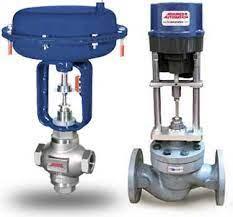
Motorized control valves can stop, restart, and modify flow as needed, ensuring that operations operate smoothly. By opening or closing an aperture, motorised control valves manage the flow of a pipeline. Liquid may readily flow through the valve when it is open.
A motorised valve is one with an electric motor that opens or closes its mechanism. This valve is best for big valves or remote fluid control applications including aeroplane deicing, agricultural irrigation, and automatic fire suppression.
Control valves are used in the production of a variety of medical equipment, and several major industrial firms have jumped at the chance to help in the battle against the pandemic. Companies are progressively investing in research and development for automated components that are provided to the pharmaceuticals sector, such as solenoid valves. To obtain a competitive edge, companies in the worldwide Motorized Control Valves market are focusing on mergers and acquisitions as well as new product releases.
Pharmaceutical firms are also striving to create advanced fluid handling systems, such as automated sanitizer dispensers and liquid soap dispensers, which necessitates the use of valves. As a result, the control valve market is expected to rise in response to rising healthcare device manufacturing and increased R&D spending in the pharmaceutical industry.
Market Segmentation of Motorized control valves
By Type:
Two-way Motorized Control Valves
Three-way Motorized Control Valves
Other
By Application:
Oil Industry
Food Industry
Chemical Industry
Other
There are numerous different types of motorised control valves available, and each firm may choose the one that best suits their factory's requirements. Different valves open and close in different ways to enable liquid to pass through, for example, some slide, others rotate, and so on. There are a variety of materials that may be used to construct these control valves, and one can be chosen that will interact safely with the chemicals currently running through the system.
Manufacturers are concentrating their efforts on providing corrosion-resistant valves that can withstand severe conditions. Furthermore, sales of control valves such as electric valves and ball valves are expected to increase significantly throughout the evaluation period.
